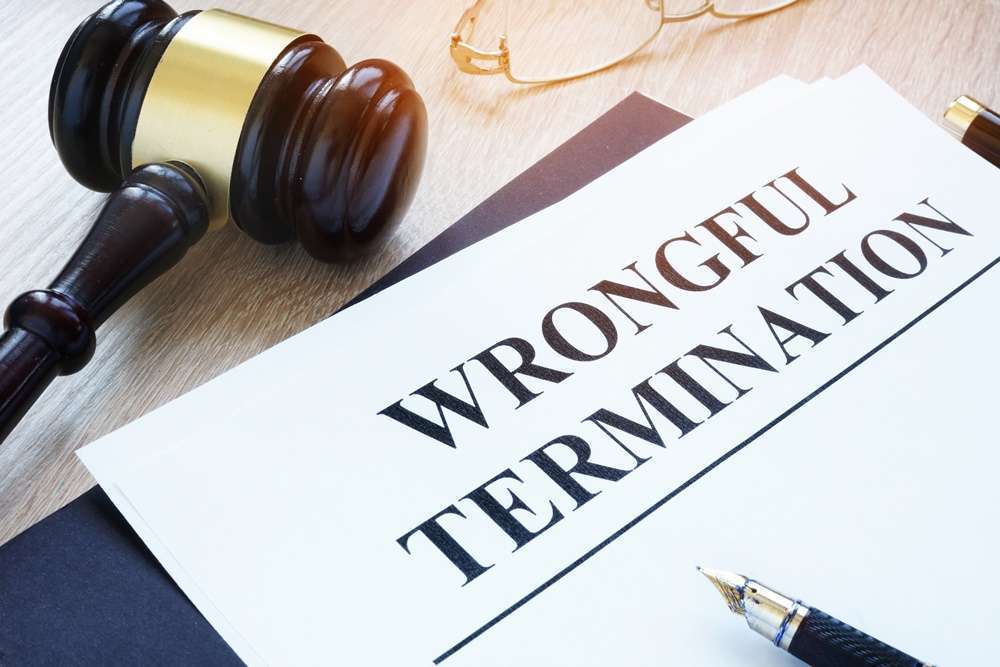
Starting a new job is never easy
Dismissed when you have just started your job, is stressful and never easy. You so looked forward to that job. Sometimes you turned down other offers or opportunities to take this one. Yes, it was a struggle, to begin with. But who doesn’t struggle when they have just started a job? Employers would know this. The aspirations that the job was going to bring have been taken away from you. You told your family, and friends about your new job, a new beginning and now it’s gone. What do I tell everybody? Dismissed During the Probation Period, you need answers.
Well, let’s work through it with you. Please read on, let’s see how we can help you.
What Can I Do? What Are My Options, My Rights?
We get many enquiries regarding what is on the surface unfair dismissal enquiries for employees who have worked a relatively short period of time, in what’s referred to as the probation period. Dismissing during the probation period is stressful and confusing. Today’s article discusses “dismissed during the probation”.

Not a cultural fit
What is quite common is the employer informing the employee that they are not a “cultural fit” and that’s why they cannot have the employee there any more. What does that mean many employees ask? The employee in most cases is completely confused. The reason is that employers cannot be bothered explaining why the employee is dismissed and getting into a potential argument over this. Particularly if the employee doesn’t qualify and has access to the unfair dismissal regime. What’s the point many employers think? It didn’t work out for us, so we are moving on.
Or it’s because they are dismissing the employee for an unlawful reason (illness, injury race etc) or it’s in the exciting a workplace right. (usually your complaints or enquiries). The employer of course does not want to inform the employee of the real reason for the dismissal.
How long the probation period
Probation periods typically last three to six months and are utilized to determine the suitability of a new employee for the workplace. If you are dismissed within this time, it is unlikely that you will meet the eligibility criteria to lodge an Unfair Dismissal Application with the Fair Work Commission, Which requires six months of employment in companies with more than 15 employees, or over 12 months in companies with fewer than 15 employees.
However, this does not mean that you do not have rights. You are still entitled to pursue your rights through the Fair Work System. Even if ineligible for Unfair Dismissal, you may still be able to pursue a General Protections Application in the Fair Work Commission for adverse action by the employer (the complaint or enquiry). It is important to note that if you have been dismissed during your probation period, you are still entitled to receive a notice and be paid out your unused accumulated annual leave hours.

What are General Protections Applications?
General Protections Applications have slightly different requirements from Unfair Dismissal Applications, but they have very similar effects. By pursuing either an Unfair Dismissal Application or a General Protections Application, you can seek either reinstatement of your position or financial compensation. Reinstatement often is not practicable due to a breakdown in the employment relationship, and therefore most applicants seek compensation.
Compensation is considered an alternative to reinstatement. It is limited to compensating you for a reasonable period that you may be out of work due to losing your job, which does not typically exceed six months. To make a General Protections Application, you must establish that you were subjected to adverse action due to discrimination, the exercise of a workplace right, or industrial action.
What is adverse action?
Adverse action is negative conduct towards an employee. This has occurred directly as a result of discrimination, the exercise of a workplace right, or industrial action. Adverse action may include dismissal. Altering your employment. Treating you less favourably than your colleagues Or injuring you in your employment. Adverse action can also be inaction that has caused damage to you.
Discrimination is defined as different or less favourable treatment due to a particular unchangeable attribute about you. The Fair Work Act 2009 (Cth) protects 13 specific attributes:
- Race
- Colour
- Sex
- Sexual orientation
- Age
- Physical or mental disability
- Marital status
- Family or carer’s responsibilities
- Pregnancy
- Religion
- Political opinion
- National extraction
- Social origin
This means that if you are treated differently or worse than your colleagues for one of these reasons, you may have been discriminated against. Any instances of negative treatment due to the attribute. Including the dismissal itself, can be considered adverse action, in respect of which you may be eligible to make a General Protections Application.

Excise of a workplace right
An exercise of a workplace right typically is where you have made complaints or enquiries about your employment. However, it also includes receiving a benefit or having a role or responsibility under a workplace law, or where you have commenced legal proceedings for a workplace matter. Workplace rights can also include rights in relation to JobKeeper and the COVID Safe app.
If you have stood up for yourself in the workplace, raised concerns about something, or asked questions about your role, and as a result, you were subjected to negative treatment, you may be eligible for a General Protections Application. I refer you to our general protections page which has a significant amount of detail, expanding the basis of claims.
Protections for industrial activity include where you engaged in, proposed to engage in, or refused to participate in industrial activity. Industrial action typically involves being a part (or not being a part of) unions. In summary, if you believe your dismissal during your probation period was due to either a discriminatory reason, an exercise of a workplace right, or in relation to industrial activity, you may be able to lodge a General Protections Application in the Fair Work Commission.

What does the General Protections process look like?
Once you lodge a General Protections Application, which you can do yourself or through a representative such as ourselves, the Fair Work Commission usually responds within a week to notify you that the application has been accepted and likely schedules a conciliation conference to be within three to five weeks’ time.
Conciliation conferences are typically held over the phone and are essentially a negotiation to seek a remedy, that is, the outcome you are seeking, which may be compensation, reinstatement, payment of accrued entitlements, or anything else relevant. Conciliation conferences are a voluntary process for both employees and employers, but employers often do participate, especially if you have engaged a representative.
A conciliator from the Fair Work Commission is also in attendance, with the role of facilitating discussion and negotiation between the parties, potentially suggesting settlement options. The parties must agree on the settlement outcome, and no decision is made by the Fair Work Commission at this stage. However, you can maximize your chances of settling by engaging a representative to speak on your behalf and negotiate your case for you.

Timelines for lodging a dismissal or general protection claim
Whether it is an unfair dismissal claim or a general protections claim there is a very strict 21 days to lodge an application. Lodge the application to the Fair Work Commission at the first available opportunity within 21 days. It’s not 21 days from when you get your final payout. Or your dismissal letter, it’s from you’ve been informed you have been dismissed.
Conclusion: Dismissed during the probation period
If you want to discuss Dismissed During the Probation Period give us a call. We always appreciate your input or query. A Whole New Approach P/l, we are not employment lawyers, but the nations leading workplace advisors. We are leaders in the workplace, community commentary and employment rights. Our name (Gary Pinchen) is published in over 100 tribunal decisions and Gary Pinchen is the author of some 300 articles, published across the internet.
If you are unsure whether you have a claim or which application you can pursue. Please give us a call on 1800 333 666 for a free and confidential consultation. It’s free, we can help you in deciding which dismissal criteria are best for you. Explore what your employment rights are.
If you are eligible for a Fair Work Australia, Fair Work Commission matter, we may be able to represent you and achieve the justice you deserve. Fixed fees or no win, no fee can apply.

Articles similar to those dismissed during the probation perio dismissals,
Procedural fairness in unfair dismissals






